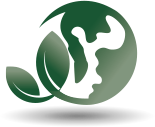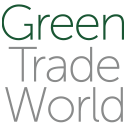100% Organic cotton
up to the right labelling”
In order to validate the declaration of use of organic cotton on the shoe models with the Green Trade World ecolabel, the manufacturing company is committed to work only with suppliers that have the Certification of the Global Organic Textile Standard (GOTS).
The Global Organic Textile Standard (GOTS)
The Global Organic Textile Standard (GOTS) is the worldwide leading textile processing standard for organic fibers, including ecological and social criteria, backed up by independent certification of the entire textile supply chain.
The aim of the standard is to define world-wide recognized requirements that ensure organic status of textiles, from harvesting of the raw materials, through environmentally and socially responsible manufacturing up to labelling in order to provide a credible assurance to the end consumer.
Textile processors and manufacturers are enabled to export their organic fabrics and garments with one certification accepted in all major markets.
Key criteria for organic fiber production
- Organic certification of fibers on basis of recognized international or national standards (IFOAM family of standards, EEC 834/2007, USDA NOP).
- Certification of fibers from conversion period is possible if the applicable farming standard permits such certification.
- A textile product carrying the GOTS label grade ‘organic’ must contain a minimum of 95% certified organic fibers whereas a product with the label grade ‘made with organic’ must contain a minimum of 70% certified organic fibers.
Key criteria for processing and manufacturing organic textile
Environmental Criteria
- At all stages through the processing organic fiber products must be separated from conventional fiber products and must to be clearly identified.
- All chemical inputs (e.g. dyes, auxiliaries and process chemicals) must be evaluated and meeting basic requirements on toxicity and biodegradability/eliminability.
- Prohibition of critical inputs such as toxic heavy metals, formaldehyde, aromatic solvents, functional nanoparticles, genetically modified organisms (GMO) and their enzymes.
- The use of synthetic sizing agents is restricted; knitting and weaving oils must not contain heavy metals.
- Bleaches must be based on oxygen (no chlorine bleaching).
- Azo dyes that release carcinogenic amine compounds are prohibited.
- Discharge printing methods using aromatic solvents and plastisol printing methods using phthalates and PVC are prohibited.
- Restrictions for accessories (e.g. no PVC, nickel or chrome permitted).
- All operators must have an environmental policy including target goals and procedures to minimize waste and discharges.
- Wet processing units must keep full records of the use of chemicals, energy, water consumption and waste water treatment, including the disposal of sludge. The waste water from all wet processing units must be treated in a functional waste water treatment plant.
- Packaging material must not contain PVC. Paper or cardboard used in packaging material, hang tags, swing tags etc. must be recycled or certified according to FSC or PEFC.
Technical Quality and Human Toxicity Criteria
- Technical quality parameters must be met (s. a. rubbing, perspiration, light and washing fastness and shrinkage values).
- Raw materials, intermediates, final textile products as well as accessories must meet stringent limits regarding unwanted residues.
Social Criteria
All processors and manufacturers must meet social criteria based on the key norms of the International Labor Organization (ILO). They must have a social compliance management with defined elements in place to ensure that the social criteria can be met. For adequate implementation and assessment of the following social criteria, topics the listed applicable -key conventions of the International Labor Organization (ILO) have to be taken as the relevant basis for interpretation.
- Employment is freely chosen
- C29 – Forced Labor Convention
- C105 – Abolition of Forced Labor Convention
- Freedom of association and the right to collective bargaining are respected
- C87 – Freedom of Association and Protection of the Right to Organize Convention
- C98 – Right to Organize and Collective Bargaining Convention
- C135 – Workers' Representatives Convention
- C154 – Collective Bargaining Convention
- Working conditions are safe and hygienic
- C155 – Occupational Safety and Health Convention
- Child labor must not be used
- C138 – Minimum Age Convention
- C182 – Worst Forms of Child Labor Convention
- Living wages
- C95 – Protection of Wages Convention
- C131 – Minimum Wage Fixing Convention
- Working hours are not excessive
- C1 – Hours of Work (Industry) Convention
- C14 – Weekly Rest (Industry) Convention
- C30 – Hours of Work (Commerce and Offices) Convention
- C106 – Weekly Rest (Commerce and Offices) Convention
- No discrimination is practiced
- C100 - Equal Remuneration Convention
- C111 - Discrimination (Employment and Occupation) Convention
- Regular employment is provided
- C158 – Termination of Employment Convention
- C175 – Part-time Work Convention
- C177 – Homework Convention
- C181 – Private Employment Agencies Convention
- Harsh or inhumane treatment is prohibited
- C29 – Forced Labor Convention
- C105 – Abolition of Forced Labor Convention
Residue Testing
- Stringent limit values for unwanted residues are defined in the standard.
- Licensed operators must undergo residue testing according to a risk assessment of contamination.
- Additional samples can be taken by auditors and sent for analysis to ISO 17025 accredited labs.
Verification: GOTS Certificate of Compliance by Control Union Certification
Textile processing, manufacturing and trading entities who have demonstrated their ability to meet the GOTS criteria outlined above, following the corresponding certification procedures and through an approved Certification company, receive a GOTS certificate of compliance. This certificate lists the certified products, product categories (and stages of production) that comply with the standard. These companies are considered as GOTS certified entities and are included in the GOTS public database list.
Facilities and subcontractors that have been inspected and evaluated on behalf of the certifier are included under the scope of the certificate in the certificates annex. Their names are not mentioned in the public database.


